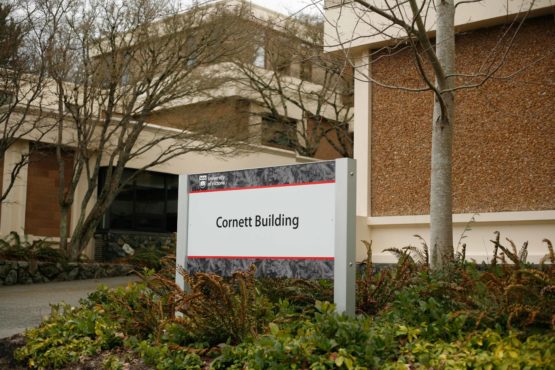I was so proud to be accepted into the University of Victoria. My first time on campus, I cried — I was struck by the beauty of the gardens, the rabbits (I miss the rabbits), the international languages, and the smell of weed floating on the air (it was April 20).
I spent the first few years of my BA sampling english lit, philosophy, psychology, and sociology classes. As a Sociology undergrad, I learned tangible research skills — statistical analysis, ethnography, and interviewing techniques — which landed me a job with the B.C. Government before I graduated. I graduated with distinction (BA Honours — Sociology and Gender Studies) and began my Masters’ program in Sociology in 2016.
At this point, things became harder intellectually and personally. There was an overall lack of collegiality. Almost no one in grad school, including faculty and instructors, had any rigorous exposure to feminist, critical, or Indigenous analytical frameworks or methods. What’s worse, some — not all — seemed to despise my interjections. Rather than seeing my contributions as vital I was treated like a trespasser.
The fissures that have divided us must be bridged.
Peers rolled their eyes at me when I spoke in class and classmates (mostly male) challenged me on concepts of gender, including my own experiences (see ‘mansplaining’). Core courses tokenized women’s work or excluded them entirely, as they did with critical race theory, and Queer and Indigenous scholarship. Professors wrote long-winded responses to my papers (objecting to the feminist content, not the quality). I was told I “liked to push buttons” or that I was “too passionate” (as though that’s a bad thing). Still, I assumed these were singular experiences.
As the elected student representative this year, I found out I was not alone. These issues were systemic. Other students were having these experiences: women, international students, racialized students, Indigenous students, students who identified as gender fluid or non-binary, students who were coping with in/visible dis/abilities, single mothers, and students who were coming from generational poverty. The common denominator among us was the feeling of oppression and marginalization.
This is unacceptable, and I regret thinking it was okay, even if it was just me. Gender, sexual orientation, race, age, class, ability, and political beliefs are protected categories. Redressing this behaviour is therefore not an option or a choice, but rather the law. But how that happens can still be up to us.
Call me an idealist, but I believe the Sociology department is uniquely suited to set an example on campus and reach its potential as a progressive learning space.
Perhaps the most challenging part of my undergrad education was the first few years of my Gender Studies degree. I had to face the fact that I hold great privilege as a white heterosexual person whose first (and only) language is English and whose birth certificate says Canada. I had to acknowledge my complicity in upholding the dominant culture, and I am still learning how to be an ally to those whose experiences are not as privileged as my own.
Call me an idealist, but I believe the Sociology department is uniquely suited to set an example on campus and reach its potential as a progressive learning space. This means that the fissures that have divided us must be bridged. I hope that the students, staff, and faculty who are upset at student representatives who took the department to task will recognize that while we don’t speak for everyone, it was our duty to act even if the negative experiences were those of a minority of students. I am proud of the members of our department who voiced their concerns. I also know we are not alone; many faculties on campus are currently grappling with gender inequities and issues of inclusivity and diversity.
I thank the Dean of Social Sciences, Dr. Catherine Krull, for her stated commitments to address issues of gender imbalance in faculty and her promise to provide support as we work through this situation. I am buoyed by the department voting unanimously for the creation of a student caucus and agreeing to work collaboratively with us to deal with complaints and look earnestly at how we can increase diversity in our curriculum and pedagogies.
We have nothing to be ashamed of in Sociology. We are in the midst of a much larger shift in academia and as a country. As we address the TRC’s Calls to Action, and as a multicultural nation who increasingly attracts international students from all over the world to our campuses, we are feeling growing pains. But in light of the #BlackLivesMatter and #MeToo movements, it’s also important that universities take a leadership role in listening to and believing those who come forward.
The question is not if we should do this work of decolonizing higher education, but how. For that, we must look to Indigenous, feminist, and racialized approaches and critical scholarship. We must decentre our Western — and, yes, male — perspectives and begin to tell the whole story if we are to heal and achieve the vision of inclusivity and equity we say we want.








